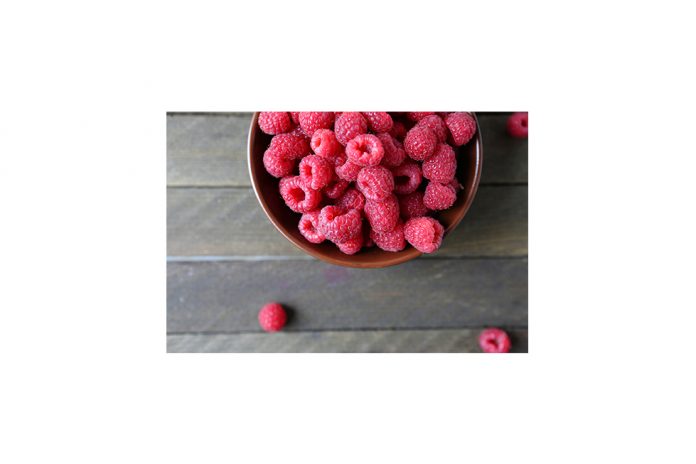Raspberry ketone is most known for its use in perfume, cosmetics and as a food additive, giving off a fruity odour. As of late, it has been shown to increase fatty acid oxidation and prevent elevations in body weight; this effect has only been demonstrated privately in one small human study (Ziegenfuss, 2006) that looked at metabolic rate (including fatty acid oxidation) and safety in humans, using a specific raspberry ketone raw material called Razpberi-K®. Razpberi-K is used exclusively by Nuvocare Health Sciences Inc. in Canada
and is a registered trademark of Integrity Nutraceuticals International. No other studies have been done with humans, although products containing this compound are marketed
for weight loss.
History
Red raspberries have been used for centuries in traditional medicine to treat a range of conditions and ailments. Raspberry ketones are a major aromatic compound in red raspberries, making them responsible for the smell of raspberries. Due to this, raspberry ketones have been used in cosmetics and perfumes as a scent since the 1960s.
Origin
Naturally extracted raspberry ketones exist at about 1-4 milligrams per kilogram of red raspberries. It would not be possible to eat enough raspberries to get a physiologically active dose. Because of this, naturally extracted raspberry ketones are extremely expensive, and so commercially available varieties are often synthesized in a lab.
Benefits
The three benefits raspberry ketone is known to deliver are:
• An increase in norepinephrine-induced thermogenesis (especially when taken before exercise)
• An increase in Hormone Sensitive Lipase (HSL) in fat cells, which causes fat cells to release fatty acids to be used as energy
• A decrease in fat absorption in the small intestine
Effective dosage
In the only human study conducted, 200 mg was shown to be safe. On his show, Dr. Oz recommended a dose of between 100 and 200 mg, two times daily. This is considered the ideal dosage (and preferably 200 mg before exercise) to help support weight loss when combined with diet and exercise.
Side effects
Some people experience stomach irritation if they take 400-500 mg or more of raspberry ketone at one time, so this should be avoided.
Format
Capsules
Regulations
In 1965, the U.S. Food and Drug Administration placed raspberry ketone on “generally recognized as safe” (GRAS) status. Despite the lack of research, due to raspberry ketones being extracted from fruit, they are generally considered safe.
Health Canada classified raspberry ketone as a Natural Health Product (NHP) under Schedule 1, item 2 (an isolate) of the Natural Health Products Regulations. Its non-medicinal purpose, according to Health Canada, is as a flavour enhancer.
Current research
There is only one privately conducted human study on Razpberi-K® and no public studies available yet on the effects of raspberry ketone in humans. Dr. Oz’s advice is based on two research studies involving mice that were fed high-fat diets and high doses of raspberry ketones and failed to gain as much weight as other mice on the same diet, without the raspberry ketones.
Another study also found that raspberry ketones promoted the breakdown of fat inside the fat cells to increase weight loss in mice.
Therefore, raspberry ketones have been established as body-fat-reducing in mice, and can potentiate fatty acid oxidation in humans (Razpberi-K®) yet further research using humans needs to be done to more clearly define the efficacy of raspberry ketones in humans.









